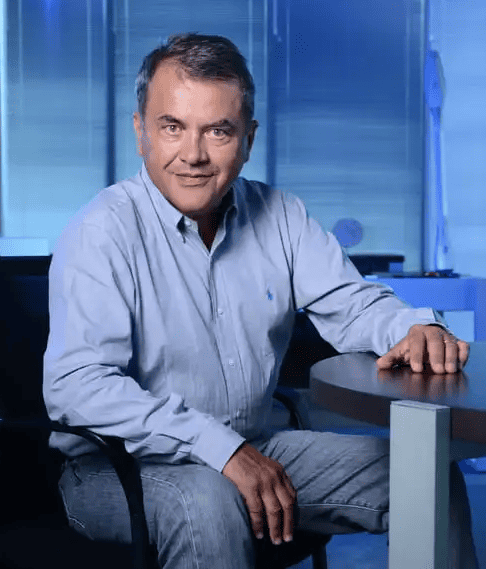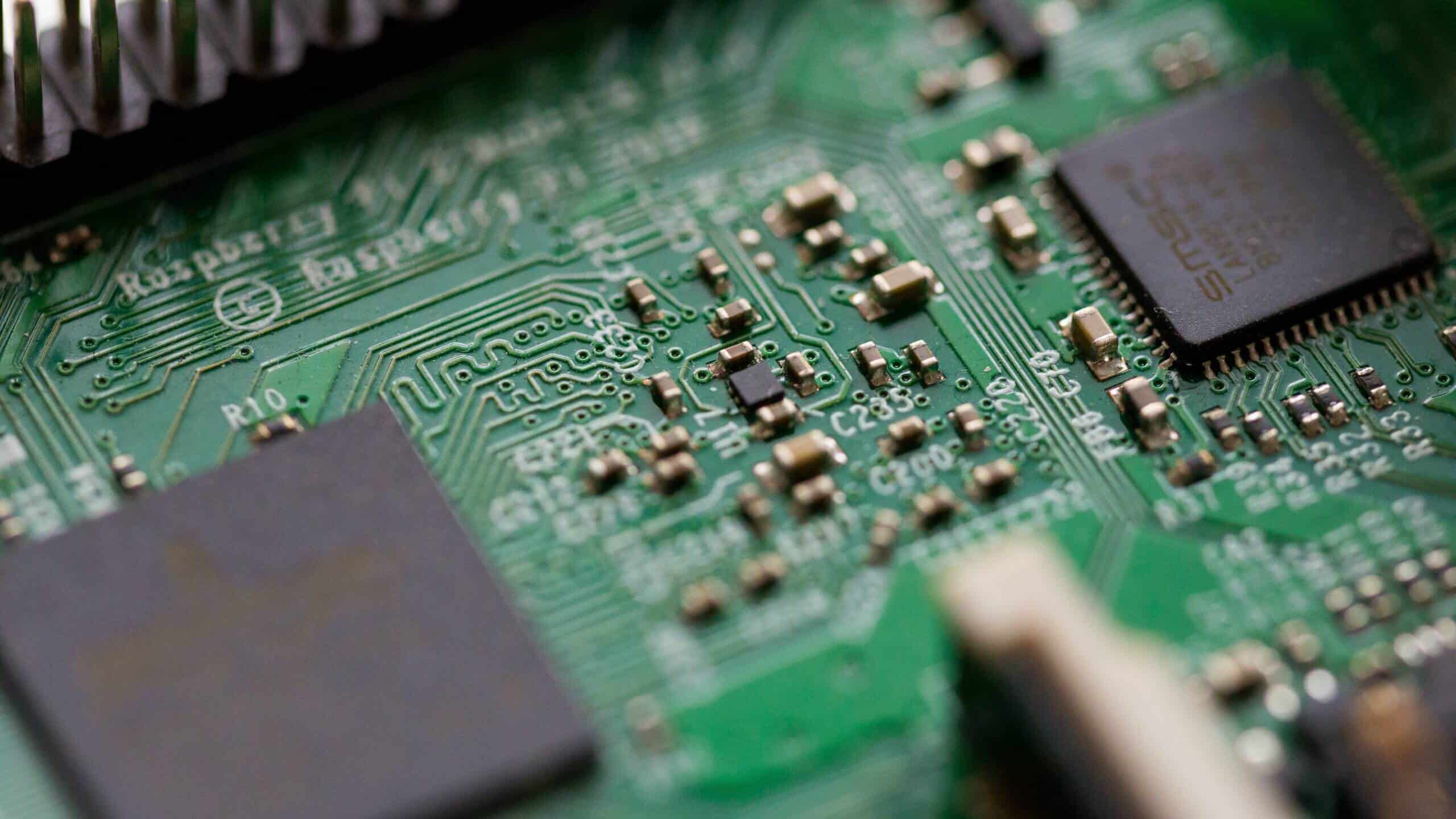The AI-driven natural language processing tool ChatGPT has been hailed as a new technical breakthrough that will forever change the technological landscape. But how can regular companies harness its powers for the benefit of employees and customers? Enter companies like conversational AI Druid that act as a middle layer between these technologies and the end user. In this interview CEO Liviu Dragan tells us about how ChatGPT benefits mature conversational AI companies and his plans to conquer the US market.

CEO and Co-Founder, Druid AI
Liviu is the CEO and Co-Founder of Druid AI. In the 1990s, he created two of the most renowned Romanian IT brands, TotalSoft and Charisma that became a valuable business card for the entire Romanian software industry, reaching more than 1000 enterprise customers worldwide under Liviu’s leadership. Liviu is a founding member and president of the Software and Services Industry Association (ANIS) and is actively involved in promoting the Romanian IT industry. He has a doctorate in engineering from the Bucharest Polytechnic Institute.
Your first company, TotalSoft, became one of the first Romanian startup success stories. How did you manage to navigate those early days of entrepreneurship and build the company into a leading software provider in Central Europe?
I founded TotalSoft at the end of 1994. I wanted to develop an enterprise resource planning (ERP) software that companies could use to manage their day-to-day business activities such as accounting, procurement and so on. This was a very ambitious dream at the time and I quickly realized I needed investors to build it. We raised $1m from a Dutch investment fund for a 40% stake in the company. That initial investment was enough to set up a team and we managed to develop and launch our product, Charisma ERP, in a year and a half. The company grew to be one of the most important providers of business software systems in Central Europe, with over 800 projects in 60 locations and customers including the likes of Volvo Financial, Daimler Financial and Caterpillar. TotalSoft was acquired by Logo Software Investment, the largest independent software provider in Turkey, for over EUR 30 million at the end of 2016. When I left the company at the end of 2017 to focus on Druid, the company had a team of 400 people and a EUR 5 million yearly profit.
What made you decide to take on a new challenge and found Druid AI?
I realized there was a real need for companies in areas like mobility or self-service to do business just through chat. My goal was to build a conversational AI platform that would be easy to implement and upsell. At TotalSoft, I had very competent technical people around me who understand business as well and they were also ready for a new challenge. So together with Daniel Balaceanu, now our Chief Product Officer and Andreea Plesea, our current Global VP, we founded Druid AI. They both worked with me at my previous company and over 30 other people followed me to Druid from TotalSoft when the startup was founded. In the five years since, Druid has reached 120 employees, with only three people leaving the company in that time. I think this shows we have a good company culture, and our employees believe in what we are doing.
How has the Romanian startup ecosystem changed since you founded your first company?
I think there have been some great changes in the last five-six years. Romania has always had very competent technical people, but before they were mostly working in outsourcing companies which meant developing software according to the requirements of businesses based in other countries. Now they are founding their own companies and some of them have become very successful, with valuations higher than $100 million. We are also seeing our first Romanian unicorns. UiPath is the most famous example, but there are others.
Where we need to make more progress is on the venture capital side. We need more equity funds like those in Poland and the Czech Republic. Right now, we only have around 5 venture capital firms and some equity funds with around $100 million in funds which is not much. Although there are US and European VCs that come to Romania looking for promising startups.
Why is there not more venture capital investment happening in Romania?
I think it’s also a question of mentality. In Romania, tech startup entrepreneurs focus too much on developing a good product and many consider sales a frivolous afterthought. But a product that is not sold, doesn’t exist. This is something I think young Romanian startups need to be educated on. When we launched our product at Druid, our priority was to sell it to hundreds of clients immediately. Because that’s how you grow and improve your product.

Invest in Startups
As one of Europe’s most active venture capital investors, we grant qualified private investors access to top-tier European startups. With investments starting at EUR/CHF 10’000, you can build your own tailored portfolio over time and diversify across stages and sectors.
What does the appearance of ChatGPT on the market mean for Druid? Is it a threat?
Quite the contrary, it’s 100% beneficial and not only for Druid. ChatGPT is a gift for all mature conversational AI platforms. It shows that there is a huge appetite for conversational AI, that people want to be able to find reliable information by themselves without having to discuss it with competent people. The conversational AI market is also crowded right now, there are many platforms being developed, but not many of them have a software company behind them. But now it’s impossible to integrate ChatGPT into a platform if its architecture is not very well designed. So that means that there is a great advantage for mature and architecturally well-designed platforms. Because of this, the market will become less crowded.
What is a use case for Druid connected to ChatGPT?
Let’s take Verve’s website as an example. It has perhaps a few hundred pages. In only two days, we can take all the information from it, put it on our platform and then with the ChatGPT connector, we can put a chatbot on your platform. Then everybody can just ask it questions about Verve, in different ways and instantly get answers based on the website’s knowledge base. So instead of having to navigate the site to find the right information, scrolling through multiple pages, they can use the chat and get the correct answers immediately. Now imagine the benefits of such chatbots on massive websites with thousands of pages of information.
You recently moved your headquarters to the US. What made you take this decision?
Because I like challenges. When I was a child, my grandfather used to say that when faced with a tough decision, if I don’t know which option to choose, I should always choose the more difficult one because that is the right decision. In this case, staying in Europe would be more comfortable for me because this is a market I know much better, but I felt I had to accept the challenge and take the uncomfortable decision and head to the US because for conversational AI, the US market is the place to be.
However, the US market is notoriously competitive and it’s no different when it comes to conversational AI. How will Druid differentiate itself?
There are multiple features that make Druid unique. We are not a purely conversational AI platform but have moved on to the next level which is conversational business applications. This means that we don’t just offer a conversational AI platform, but we can develop applications to serve the needs of a business using conversational AI based on a chatbot. This is something unique to our platform.
Another strong differentiator is the architecture of our platform which is very secure. Organizations like the US Air Force and the US Federal Drug Association that put a lot of focus on the security and infrastructure of a product, chose Druid because of this. Conversational AI, when applied internally within a company, works with highly confidential data so its security is very important. To this end, we have conducted extensive penetration testing and Druid passed all of it successfully. Another important key feature of Druid is its ability to integrate in a native way with other business applications such as Salesforce, SAP or Microsoft Dynamics.
What are the biggest challenges ahead for Druid?
The most pressing challenge right now is the development of our team in the US. I want to hire more people and to send some of our competent people from our office in Romania to the US to have a knowledge exchange in place. If you have a great product and a strong team at headquarters, the most important thing for scaling is to have a good sales team in the field. And I think this is something we now need to build in the US.
Written by
WITH US, YOU CANCO-INVEST IN DEEP TECH STARTUPS

Verve's investor network
With annual investments of EUR 60-70 mio, we belong to the top 10% most active startup investors in Europe. We therefore get you into competitive financing rounds alongside other world-class venture capital funds.
We empower you to build your individual portfolio.
More News
20.06.2023
“1% of the Swiss population uses our product daily”
HUMANOO, the corporate health and wellbeing platform, has gained the trust of over 750 organizations across the globe, including some of Europe’s biggest health insurers such as Techniker Krankenkasse in Germany and Helsana and CSS in Switzerland. In this interview, Co-CEO Maximilien A. Notter tells us how HUMANOO’s platform incentivizes users to pursue health activities and how this benefits the companies they work for.
16.03.2023
How digital therapies can help children overcome learning disorders
Neurodevelopmental disorders that hinder children’s ability to read, write and perform calculations affect 250 million children worldwide. Left untreated, these disorders persist into adolescence and adulthood, leading to unemployment and serious mental health issues. Can the emerging field of digital therapeutics offer a solution? We talked to the CEO of Mila, François Vonthron, to find out.
12.01.2023
Why a new generation of chips are needed for AI
AI models rely on the quick processing of massive amounts of data that classical computing circuits were just not designed for. Professor Luca Benini of ETH Zurich tells us why it's urgent to tackle this challenge and how Dutch startup Axelera is aiming to solve it.
Startups,Innovation andVenture Capital
Sign up to receive our weekly newsletter and learn about investing in technologies that are changing the world.




